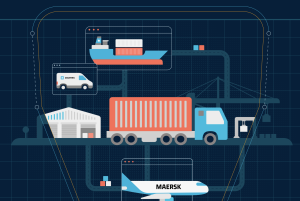 Managing costs is a critical area for SMEs, but it is often difficult for entrepreneurs to keep costs under control. In a nutshell, if you underestimate the expenses related to running your enterprise, there will be less profit at the end of the month than anticipated.
Managing costs is a critical area for SMEs, but it is often difficult for entrepreneurs to keep costs under control. In a nutshell, if you underestimate the expenses related to running your enterprise, there will be less profit at the end of the month than anticipated.
There are a number of potential areas of spend which are likely to be misjudged when first starting out in an enterprise, Don Pitsoe of ED organisation The Hope Factory, tells SmartProcurement.
“The way around this is to research all costs beforehand so that you have an accurate and realistic view of the projected expenses.”
Furthermore, to remain in control, especially during the start-up phase, it is important to keep careful track of all expenses. This is vital to the life and growth of any start-up.
Which start-up costs are commonly missed?
Everyday expenses such as stationery, utilities (including water and electricity), rates associated with business premises, insurance (both short-term and life), professional fees (such as bookkeeping and tax consulting), tool fees – for example software or other items essential to conducting the business, petrol/diesel expenses and finance-related costs (such as interest) are all commonly neglected or underestimated.
Do I need to worry about odd expenses?
Small costs can mount up, and the business should generate sufficient income to cover them – they should not come out of your pocket.
We all want to minimise our tax liability, so it is important to include all amounts – no matter how small – in the accounts, provided that they are allowable business expenses. If in doubt, consult a professional to get clarity. This will save money in the long run.
How do you distinguish your business?
Managing costs during the start-up phase is very important, but long-term success is defined by your ability to be unique and better than what’s already available in the market. One of the best ways to find your niche is to create a business that offers something that people need, and if you have a business venture that fills a void in the marketplace and can be launched at a low cost, you’re in good shape – regardless of the economic climate.
A few years ago entrepreneur Edward Moshole started a business with an investment of a mere R68. Today the business product range has grown extensively because of good cost management.
You have to continually monitor your cost and also draw a cash budget for 6-12 months to help you effectively monitor and manage costs.
Why should I minimise my start-up costs?
The last thing you want to do is invest your time and money in a business that will never give the returns you expect.
When reducing costs to the bare minimum, you stand a better chance of making a profit – or even simply surviving – in the crucial first year (it is likely that the business will not make any profit in the first year or two), because you need to turn over less to break even. Also, it’s a good discipline to get into from day one. In business, it is important to keep the costs as low as possible and avoid buying things that are not absolutely essential to the operations. Your chances of long-term success are much greater if you have a low cost base, particularly in the current economic climate.


























